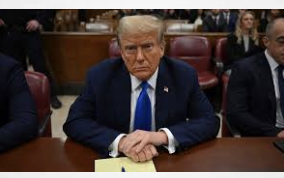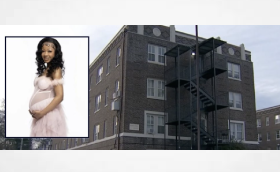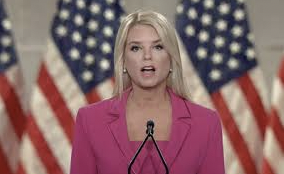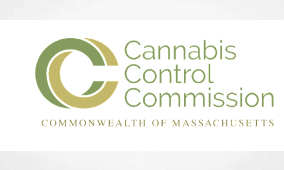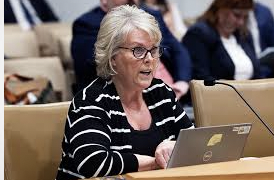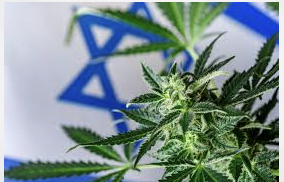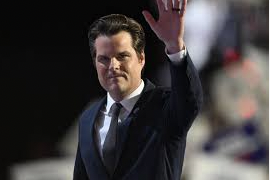In a complex legal challenge, former U.S. President Donald Trump faces felony charges in New York City over a 2016 payment intended to silence porn star Stormy Daniels.
This trial marks the first criminal prosecution of a former American president. Trump, denying all allegations, has responded to a 34-count indictment alleging that he manipulated business records to influence the 2016 election by concealing the payoff.
The trial, unfolding in Manhattan, could extend from six to eight weeks following a jury selection phase possibly lasting a fortnight. Trump has consistently stated that the payments made by his former lawyer, Michael Cohen, were lawful legal expenses, although the prosecution challenges this characterization.
As the legal proceedings progress, the court has prepared for a thorough examination of the case, emphasizing impartiality and the exclusion of political biases. Joshua Steinglass, an Assistant District Attorney, has underscored the importance of honest juror responses, irrespective of their political leanings. This point was echoed in the court’s directive that the trial should not serve as a political judgment.
Picking Jurors for the Trump-Stormy Daniels Trial
The selection of jurors has proved complex, with many potential jurors excused due to concerns over impartiality. The court is taking significant measures to ensure a balanced jury pool, reflecting diverse political and social backgrounds.
Observers note that Trump has been actively engaging with the trial, showing varying degrees of interaction with the proceedings. Some jurors have reported their media consumption and political activities to highlight their non-partisan stance, which includes following different news outlets and not exclusively aligning with one political viewpoint.
The trial is seen as a critical test of the U.S. legal system’s ability to remain fair and detached in politically sensitive cases. This situation is amplified by the intense media coverage and public scrutiny surrounding every aspect of the trial.
The former president’s presence and reactions during jury selection have been closely watched, with every nod, smile, or frown potentially influencing public perception.
Where the payments legitimately categorized as legal expenses?
The legal strategies of Trump’s defence team have involved challenging the prosecution’s framing of the payments, arguing that the funds were legitimately categorized as legal expenses. The defence also points to procedural and substantive legal safeguards to bolster their case, asserting Trump’s right to a fair trial.
The case not only explores legal boundaries but also delves into the complexities of personal reputations and political careers at stake. The outcome could have far-reaching implications for how high-profile cases are handled in the United States, particularly those involving figures of significant political influence.
As the trial continues, all parties are under immense pressure to navigate the legal labyrinth carefully, ensuring that justice is served while maintaining the foundational principles of the American judicial system. The world watches as this historic trial tests the limits of legal and political accountability in a deeply divided country.

